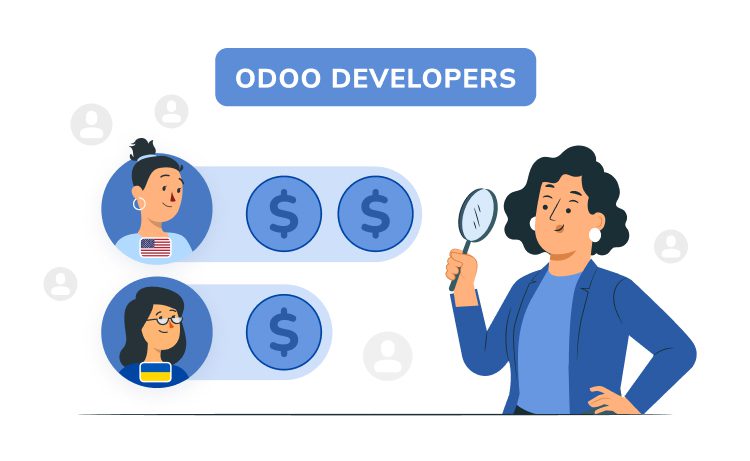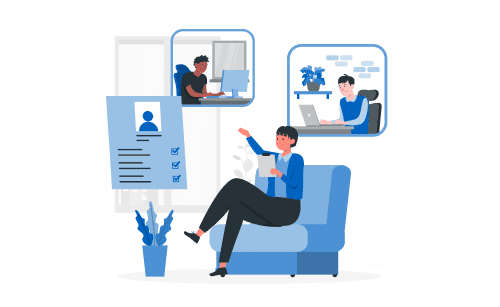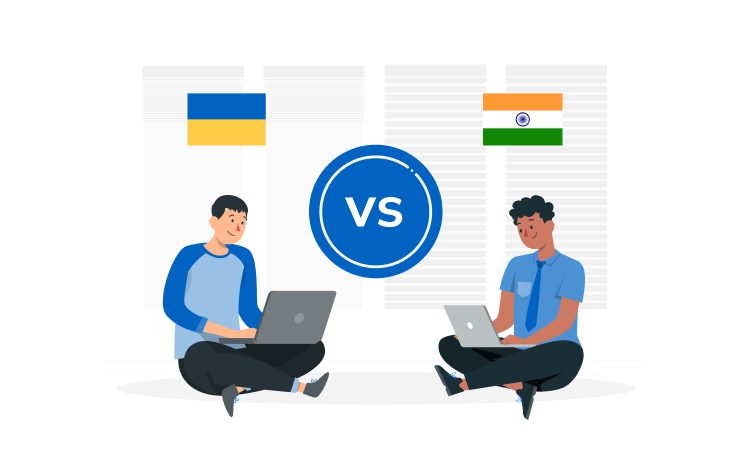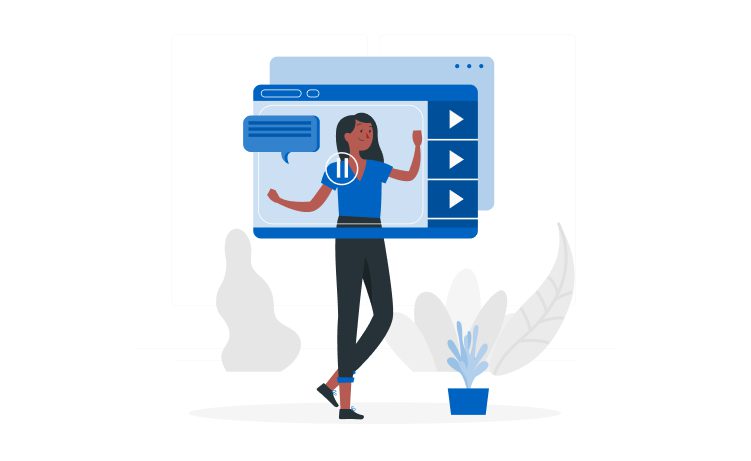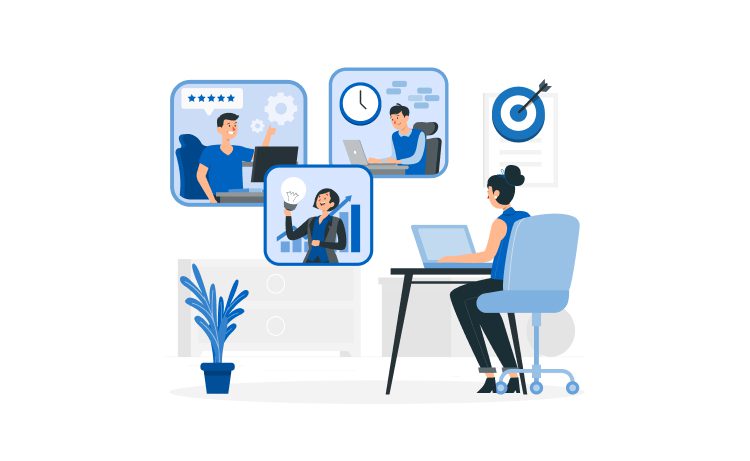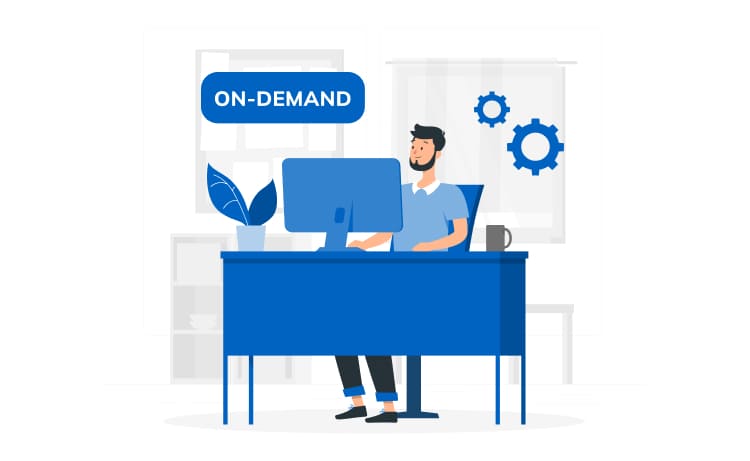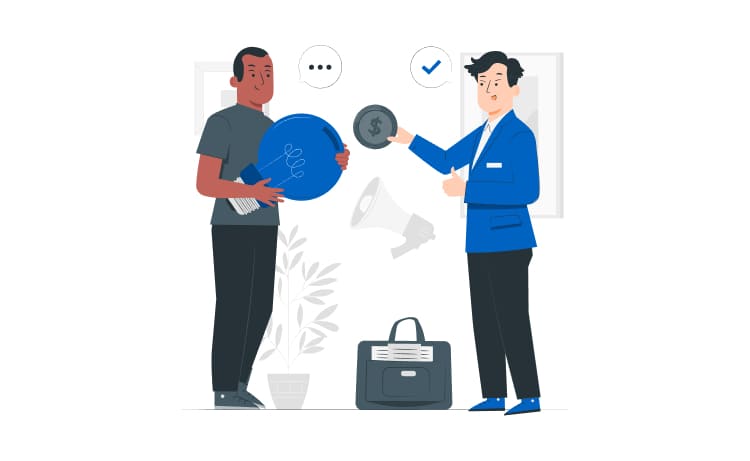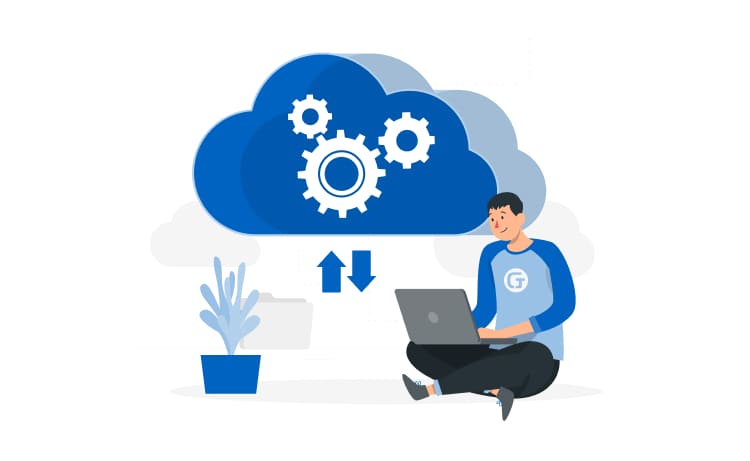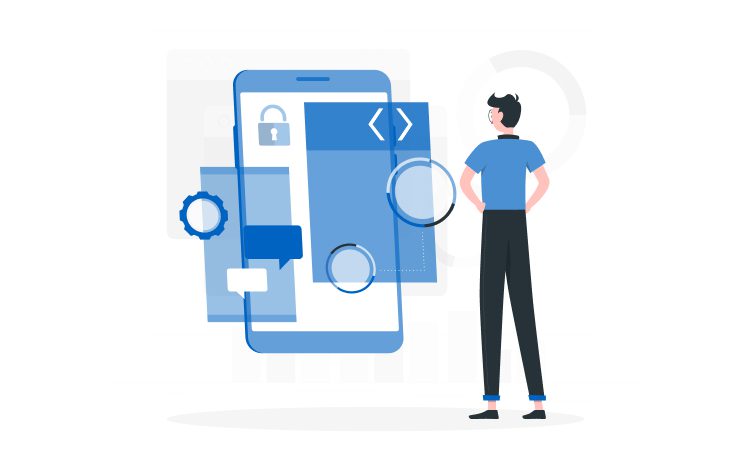
Outsourcing Mobile App Development in 2026: Trends, Models, and Best Practices



The explosive growth of smartphones and remote work means that every enterprise eventually needs a mobile solution. Around 70% of tech companies outsource at least part of their development process to build high‑quality apps quickly and cost‑effectively. Instead of maintaining a full in-house development team, many firms opt to outsource mobile app development, allowing them to focus on business growth. At the same time, experts handle design, coding, and testing.
This article covers popular cooperation models, price differences in different regions, and explains how to choose a reliable outsourcing partner. We’ll also explain when you need to outsource mobile app development services, and take a look at development trends for 2026.
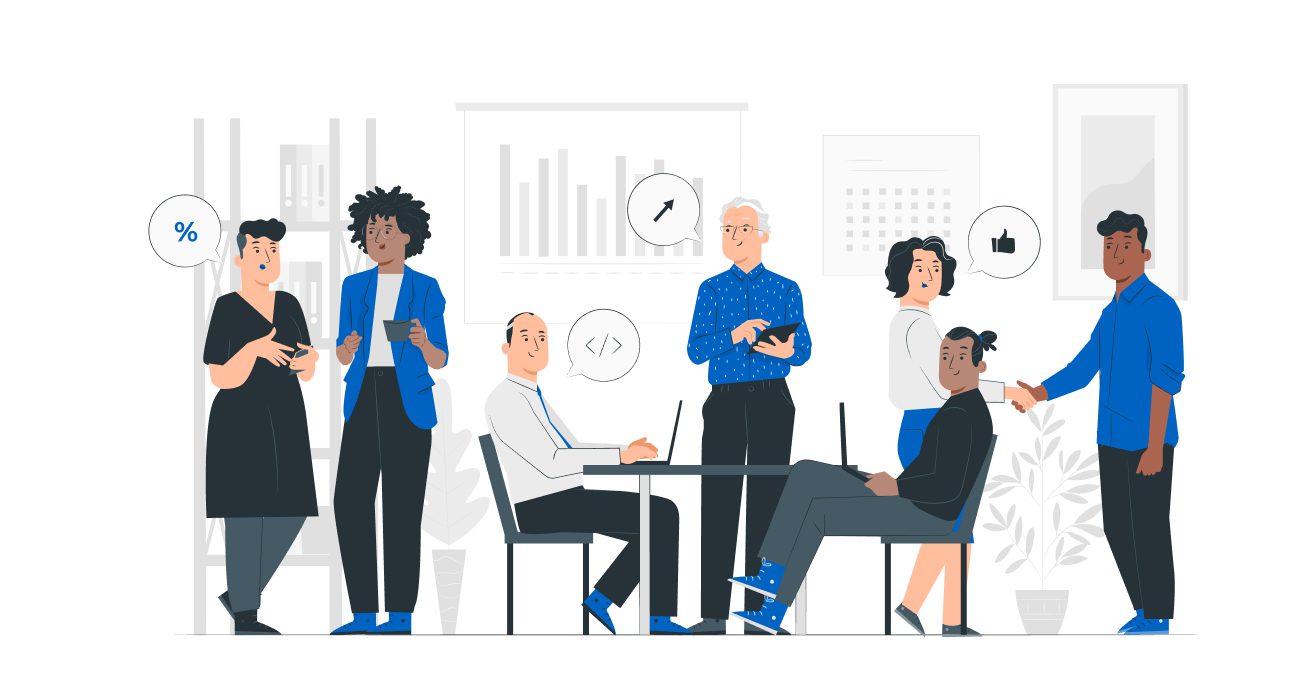
Content
Outsourcing mobile app development offers several advantages over building an in‑house team:
Outsourcing app development is a strategic decision that combines business vision with external expertise to deliver scalable and innovative mobile products.
Outsourcing arrangements are often categorised by geography. Understanding these models helps you choose the best fit for your project and budget.
| Model | Description | Main benefits | Considerations |
| Onshore | Partnering with a service provider in your own country | Local talent without expanding your in‑house team; easy face‑to‑face meetings and cultural alignment | Higher labour rates mean onshore outsourcing can be expensive |
| Nearshore | Outsourcing to a neighbouring country or one in a similar time zone | Cost savings compared with domestic vendors, plus access to a broader talent pool. Proximity reduces travel and enables smoother communication | Minor language or cultural differences may exist, but they are easier to manage than in offshore settings |
| Offshore mobile app development | Delegating work to a distant country with significant time‑zone differences | Substantial cost savings; access to highly skilled offshore mobile app developers where labour costs are lower. | Communication barriers, time differences, and cultural differences require stronger coordination |
Besides location-based models, you can choose from various engagement types, including fixed-price contracts, time-and-materials, or dedicated teams. The right model depends on your project scope, budget, and need for flexibility.
Picking an app development outsourcing company is less about “who can code” and more about who can demonstrate a proven track record, ship reliably, communicate clearly, and protect your business. Buying behavior is also stricter now: in 2024, shortlists shrank, with 49% of buyers considering only 1–3 options. That means your due diligence has to be fast and focused.
Ask for real store links. Look for experience with your target approach, native mobile app development, or cross-platform app development (such as React Native / Flutter), and evidence that they’ve shipped comparable complexity (e.g., payments, authentication, custom features, compliance, multi-tenant admin, etc.). If your outsourced mobile app development project is complex, prioritize partners who can explain why they made their architectural choices.
Clarify who owns delivery on their side (PM/Delivery Lead), what your overlap hours look like, and which project management tools you’ll use (Jira, Slack, etc.). In 2024, 69% of buyers reported that they usually speak with a salesperson only after they’ve made a decision. Therefore, strong partners make it easy to evaluate them without chasing: a straightforward process, clear scope boundaries, and precise documentation.
A reliable partner should demonstrate a straightforward application development process, as well as how change requests are handled. Also, ask them to clearly outline what’s included in the estimate and what isn’t (design iterations, backend work, environments, CI/CD, and store release support). Procurement cycles are becoming longer for significant spends. 49% of buyers took 4+ months to decide on a $20K+ purchase in 2024, so “we’ll figure it out later” is a risk, not a sign of flexibility.
In 2024, 48% of buyers reported purchasing software that had not been approved or vetted by IT/InfoSec. However, the trend is toward tighter scrutiny, so your partner should be prepared with robust security practices, access controls, and clear IP terms. Additionally, the money at stake is substantial: IBM’s 2024 report estimates the global average cost of a data breach at $ 4.88 million.
Reviews matter, but verify them. TrustRadius found that in 2024, 73% of buyers believe they regularly or sometimes see fake reviews online. So don’t rely on star ratings alone, ask for 1–2 client references you can talk to, and cross-check case studies with live products and verifiable outcomes (release cadence, stability, retention, performance, support responsiveness).
The app development cost varies widely depending on the scope, complexity, and location of your development team. There is no one‑size‑fits‑all figure; however, industry research allows us to sketch indicative ranges. Simple apps with a few screens tend to fall into the low five-figure range. Mid-level projects with backend integration and bespoke interfaces usually reach the mid-six figures. Complex custom solutions, such as fintech or enterprise platforms, often exceed six figures. These numbers are illustrative and should be refined based on your specific requirements and market conditions.
Please note that certain factors may influence the development costs. Here are some of the main ones:
These factors explain why some app development companies pay significantly more or less than others. Always treat any cost estimate as a starting point and adjust it to reflect your unique goals.
In the table below, you can see the average price range in the different parts of the world.
| North America (USA & Canada) | Western Europe | Eastern Europe | |
| Average hourly rate | $100–$250/hr | $80–$150/hr | $50–$70/hr |
| Approximate project cost | $250,000–$450,000 | $460,800–$864,000 | $200,000–$300,000 |
| Notes | Most expensive region, but strong access to senior talent and mature delivery. | Offers strong delivery maturity and easy collaboration, but costs are higher and differ widely by country. | Often chosen for a strong cost-to-quality balance and a large tech talent pool. |
Keeping pace with the latest innovations helps your app remain competitive. Key mobile app development trends for 2026 include:
In 2026, an increasing number of mobile app development teams will utilize AI for personalization, enhanced search, and predictive analytics. The bigger shift is on-device ML, where parts of the model run on the phone instead of a cloud call. That improves privacy and responsiveness, and it helps apps stay useful when connectivity is weak.
Edge computing pushes processing closer to users, on devices or nearby edge nodes, so apps can react faster. This is especially useful for video, voice, and sensor-heavy mobile app features where milliseconds matter. It also reduces the need to stream raw data to the cloud, which can lower data-transfer costs and simplify performance tuning.
5G isn’t just “faster internet.” For mobile app development projects, it unlocks product features that used to feel too heavy on mobile, like low-latency streaming, real-time collaboration, and richer AR overlays. The practical takeaway is that teams must design for stable low latency, not just peak bandwidth, and test in real network conditions.
Cross-platform app development continues to grow because it allows for a single codebase to cover both iOS and Android, thereby speeding up delivery. Low-code/no-code also plays a role, but primarily for internal tools, admin panels, and quick experiments—not core app logic. The trade-off is technical debt: fast builds still need senior review, solid architecture, and a disciplined app development process to stay maintainable.
Users and regulators expect stronger protections, so security is being integrated earlier in the development process, rather than being left for “after launch.” In practice, that means tighter data collection, stronger encryption, safer authentication, and more transparent governance for analytics and third-party SDKs. For outsourcing app development, it also raises the bar for vendor due diligence, documentation, and repeatable QA practices across releases.
When it comes to releasing a mobile app, we most often imagine a finished IT product as a kind of benchmark to be compared to. For example, a successful service like TikTok. It is a seemingly simple solution with ordinary functionality focused on shooting short videos and publishing them. (In reality, it is very complex.)
The same situation applies to any business IT product: if it is in demand by the target audience, it will be successful; if not, it will likely fail, even if the solution’s functionality is incredible.
In outsourcing app development, we don’t rush with solution creation. A meticulous analysis should guide your app development process. If you want to launch a product on the market successfully, analyze your competitors first. Identify their strengths, weaknesses, USPs, and key features.
Copying other people’s ideas is considered a bad form, but creativity is encouraged. Your job is to work with marketers and analysts to find the key to success for popular apps, modify it, and apply it to your product with your app development team. And if you need extra hands on the deck, you can always employ mobile app development outsourcing.
After analyzing the market and determining suitable approaches to launch your IT product, draw up a roadmap. As a mobile app development outsourcing company, we recommend starting with an MVP implementation. Prepare a list of implementation priorities. For example, if you develop software for shopping, then MVP consists of catalog, filter, shopping cart, integration with the payment system, and feedback. This functionality is enough for a release, which is also MVP at the same time.
Having released an MVP in PoC status, you can choose one of two paths: upgrade the product or wait and analyze the solution’s effectiveness. We always recommend the second option unless the income comes immediately and the app takes over the market.
But even in this case, you should not abandon the upgrade. Follow the trends and update your product as much as possible. Collaborate with a mobile app development outsourcing partner to successfully monitor and analyze the market, viral trends, and more.
Small businesses often struggle with determining whether to build an in-house team or go with mobile app development outsourcing. Both option have their pros and cons, so let’s compare them.
To get started, look at the differences between these two models:
| In-House | Outsourcing |
| Permanent workers | Temporary workers |
| Know the business specifics | Have general knowledge |
| Have a specific set of technical skills | Can work with most methodologies |
| Work in a narrow niche | Easily adapt to changes |
| Maintain the product after release | Maintain the product throughout the life cycle |
| Costs for premises, equipment, salary, and training are required | Only the service is paid |
Outsourcing mobile developers or working with a mobile app development outsourcing agency outweighs in-house teams for many startups, small businesses, and even enterprises. Check out the top outsource app development companies.
Read more about in-house vs. outsourcing development.
Individual developers will suit those who need a simple but functional app. It is not easy to assemble a sensible team of singles, and its effectiveness remains questionable.

UpWork and TopTal contain profiles of good experts, but there is a lack of managers, unlike with outsourcing mobile application development. Pulling them together is also very difficult, so coordination and synchronization of work is not a simple task.
Despite the high cost of maintaining a staff of programmers, testers, and project managers, this model is quite popular. In particular, it applies to organizations that release their IT products regularly, supporting and modernizing them for a long time. Of course, outsourcing application development also comes with continuous maintenance, but large enterprises often prefer building teams in-house.
In-house development staff works for giants such as Google, Apple, Microsoft, IBM, and others, including:
Some tasks can be delegated, but such organizations prefer to create, maintain, and update the main product on their own. Indeed, in this case, your staff will cost less than outsource mobile app development.
Contrary to popular belief that outsourcing app development costs are high, hiring remote developers from Western Europe or Asia is much cheaper than hiring, onboarding, and training an in-house team.
Unlike ordinary developers, outsourcing companies provide a wide range of services, including:
If you want to outsource web app development or mobile application development, get ready for some pitfalls on the way, including miscommunication, cultural barriers, management issues, and more. To avoid and mitigate these risks, we recommend working with trusted mobile app development teams.
The benefits are significant, don’t you agree? Let’s discuss the types of outsourcing, challenges, and strengths.
At Glorium Technologies, our expertise lies in providing top-notch outsourced app development solutions to meet the diverse needs of our clients. With a highly skilled team of mobile app developers and app development experts, we excel in building cutting-edge solutions tailored to your specific requirements.
Our commitment to app development process excellence is at the core of what we do. Our team of dedicated app developers possesses a deep and structured knowledge of the latest industry trends and technologies, ensuring that every app we create is innovative, user-friendly, and optimized for various platforms.
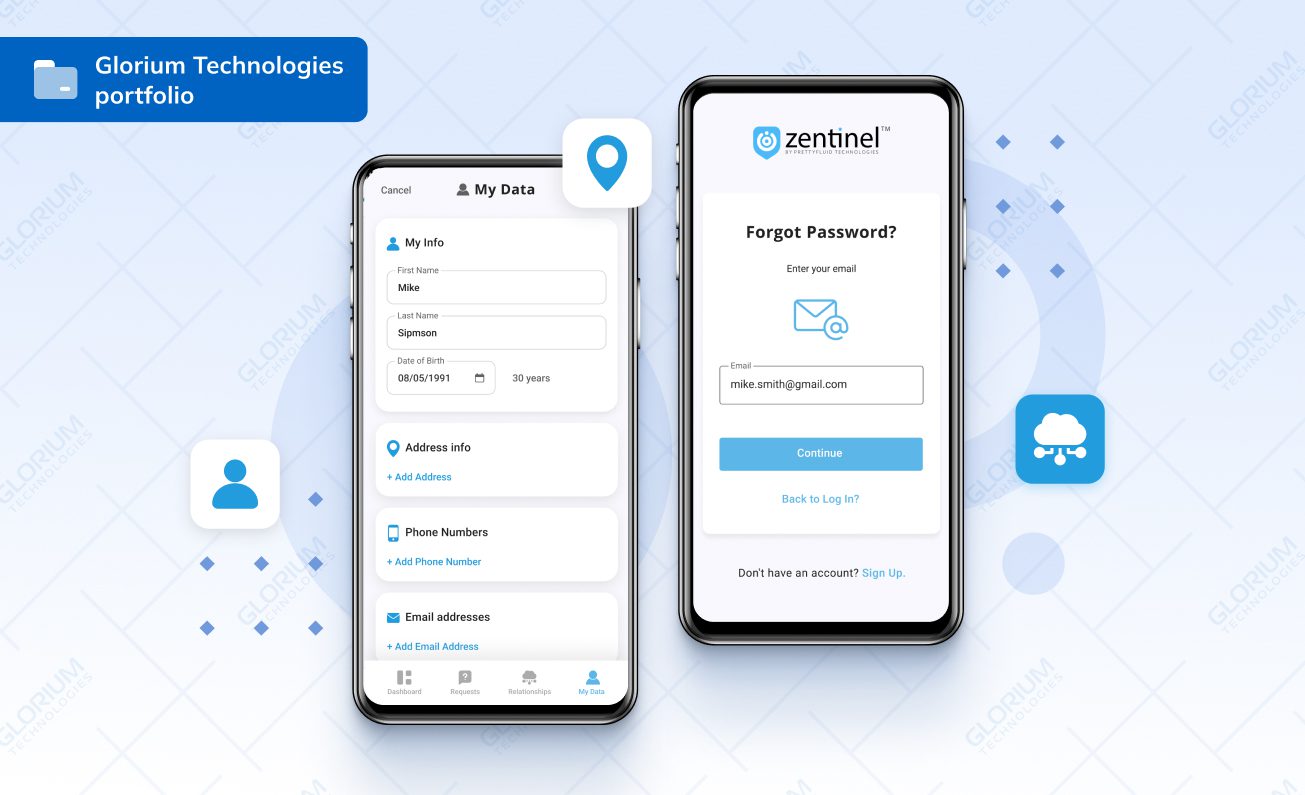 Outstanding app developers
Outstanding app developersOur mobile app developers are not just experts; they are passionate about crafting exceptional mobile applications. Their proficiency spans across cross-platform and native app development. We harness their skills to turn your ideas into engaging and functional apps that captivate your audience.
We always keep in mind that every project is unique, and one-size-fits-all solutions don’t cut it. That’s why we specialize in crafting customized app solutions that align with your business objectives. Whether you need a consumer-facing app, enterprise-level software, or a specialized utility, our outsourced team has the expertise to deliver.
At Glorium Technologies, we believe in a collaborative approach to outsourcing mobile app development. It’s our main rule to work closely with our clients. This way, we ensure that your vision and goals are fully realized in the final product. Our transparent communication channels and management processes keep you informed and engaged throughout the development journey.
In the world of app development, innovation is key to staying ahead. Our expert team uses the latest tools, technologies, and frameworks, allowing us to create apps that leverage the full potential of emerging trends. Whether it’s AI integration, AR/VR experiences, or IoT connectivity, we stay at the forefront of innovation.
Our expertise extends beyond app development. We offer comprehensive services, including app design, quality assurance, testing, and ongoing support. From concept to deployment and beyond, we’re your trusted partner in the entire app development lifecycle.
With our help, you will receive an IT product that will strengthen your position in the market and bring profit. Do you want to implement your project shortly? Just get in touch with one of our managers and get a free consultation.
The final cost of outsourcing depends on your app’s idea, complexity, features, and other factors. For example, a simple application may cost around $10,000-$30,000, while adding more advanced features and design can increase the initial cost by up to $50,000.
The project scope covers everything from planning and design to testing and launch. This process spans several months, depending on your application’s complexity. It may take your outsourcing partner to develop your application in up to 3-6 months, or, if you’re choosing a more complex system, 6-12 and even more months.
When selecting an app development outsourcing company, consider factors such as their portfolio and previous projects, references, and client testimonials to assess reputation, the skillset and experience of their mobile developers, communication capabilities for effective collaboration, transparent project management processes, and budget alignment and cost structures.
Yes, many app development outsourcing companies offer the option to assemble a dedicated team specifically for your project. This team can work exclusively on your mobile app development, providing focused attention and expertise throughout the project’s lifecycle. Working with a dedicated team is the best way to benefit from mobile development outsourcing.
Project management in app development outsourcing involves several key steps, including initial project scoping and requirements gathering, development team allocation and resource planning, clear communication channels for ongoing collaboration, milestone tracking and progress reporting, quality control and testing phases, and timely delivery and ongoing support as needed.
Efficient project management in mobile development outsourcing ensures that your outsourced mobile app development project is completed successfully, meeting your objectives and deadlines.
Timelines depend largely on scope. After a brief validation phase, development and testing can take anywhere from a few months for a simple app to roughly a year for a complex enterprise product. Factors such as additional features, regulatory constraints, and your choice of native or cross‑platform frameworks can extend or shorten the schedule.
Establish clear quality benchmarks up front and insist on structured processes. Automated testing and CI/CD pipelines significantly reduce QA time, while regular check‑ins and measurable metrics keep the app development project aligned. Select partners who communicate well, understand your industry, and adhere to security standards like GDPR and HIPAA.
Outsourcing app development introduces its own hurdles. Miscommunication across time zones or cultural lines can derail complex projects, while unclear scope and poor budgeting lead to delays and unexpected costs. Quality suffers if there is no consistent oversight, and weak contracts may expose intellectual property or data. Prevent these issues by selecting outsourcing providers with strong communication skills, agreeing on detailed milestones, setting realistic budgets and timelines, maintaining dedicated QA oversight, and securing IP rights through NDAs and robust security practices.
